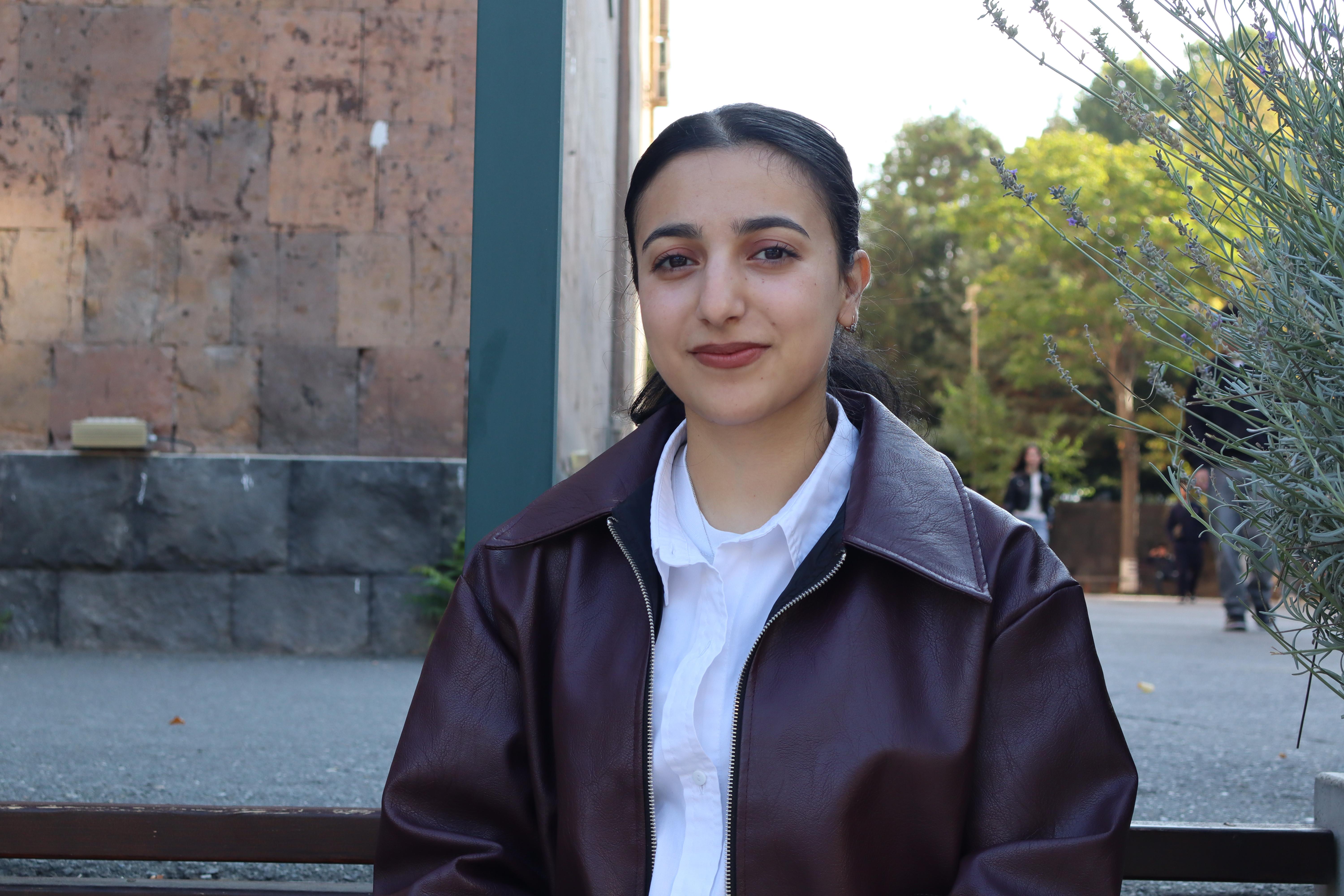
19-Year-Old Narine Ivanyan Pursues Career in STEM with UNICEF's “Gamechangers” Initiative
By Martina Sanna
“I remember boys in high school saying that writing codes, creating games, is something that might not work for girls. But I proved them wrong,” says Narine Ivanyan, a 19-year-old from Sisian, a town of 25,000 in Armenia's southern Syunik province.
In the summer 2023, Narine participated in UNICEF’s “Gamechangers - Girls for Girls” project, designed to provide young girls in rural Armenia with technical training on how to create videogames. Narine is now a third-year cybersecurity student at the National Polytechnic University of Armenia, in Yerevan.
She moved to the capital after graduating high school to pursue her ambition of working in the Science Technologies Engineering and Mathematics (STEM) field. In March 2025, two years after the Gamechangers project, Narine was invited as a panelist to talk about her experience at the South by Southwest Film & TV festival in Austin, Texas.
“The idea behind Gamechangers was to support young girls from 12 to 24 years old with opportunities to enter the STEM world, as we found there was still a stigma for young women working in the field,” Hasmik Aleksanyan, UNICEF’s adolescent development officer," she tells Hetq.
The process began at the end of 2022, when UNICEF Armenia was requested from Geneva’s regional office to get involved in the “Gamechangers Coalition”, a UN-promoted forum where private companies, civil society organizations and various stakeholders gather with the aim of closing the gender gap in STEM thanks to video games. The “Gamechangers - Girls for Girls” program is part of the activities promoted by the coalition.
“Five countries were part of the project at that time,” says Hasmik. “Brazil, India, Cambodia, Kazakhstan, and, finally, Armenia. Armenia volunteered to be part of the coalition.”
UNICEF officially launched the program in 2023, in cooperation with the Enterprise Incubator Foundation (EIF), one of the largest IT business incubators in the region. At first, they worked in three regions in rural Armenia: Shirak and Lori in the north and Syunik in the south, where Sisian, Narine’s native town, is located.
“At first, I was fearful,” confesses Narine.
“I wanted to try since I was twelve and I saw my uncle writing codes on his computer, but I kept asking myself if I really belonged in tech, If I would have been capable of writing codes for real. But when I started the program, I saw that other girls had the same fears and we helped each other, started studying together, and speaking all the time. We all had faced the stereotype that boys and men in general are more confident in the tech world. But now, I believe we can also do that."
Her words are echoed by Hasmik, who at the time was following the project closely. She remembers seeing those girls growing more and more confident in their potential and capabilities; to the point that they also wanted their male classmates to witness it.
“The program was initially designed for girls only, as narrowing the gender gap was essential in our goal, “Hasmik tells Hetq. “After some time though, the girls asked us to include boys. They wanted the boys to see with their own eyes how capable they became. This way, the boys would support them too. In 2024, we decided to do as they asked.”
During the program, Narine and the other participants were required to work in teams on a common project for a videogame, to be presented at the end of the training.
“We were taught not only about programming, but also on game design and storytelling,” says Narine. “Our game was about two siblings navigating different challenges on several planets in the universe. We ended up winning the prize for best storytelling. Unfortunately, we could not produce the game for real because in Sisian there was no infrastructure to do so. When we visited the Gyumri Technology Center (GTC) Co-creation lab, on the other side of the country from Sisian, we were very impressed. We wanted to have one too.”
The girls’ wish did not remain unheeded for long. During 2024, UNICEF Armenia started working towards opening a co-creation lab in Sisian, to serve the Syunik Province as well. Narine and the other girls were involved directly, helping out liaising with local administration and in selecting the right place to establish the lab.
By the time the newly built lab opened to the public on April 12 2025, Narine was already back from her first experience as panelist at the South by Southwest Film & TV festival in Texas.
“When I received the call from UNICEF, I could not believe it. I had to go there to represent not only me, but the voices of one hundred girls too," Narine tells Hetq. "I asked myself several times: why me? They told me it was for my commitment and hard work in the creation of the Sisian Lab. We worked together.”
Narine remembers her parents seeing her off at the airport, smiling with bright eyes. Her two younger brothers, who initially believed she was lying, ended up telling her how proud they were of their big sister.
“When I returned my brother told me they had been telling their friends, when they play videogames, that their sister was capable of building one," says Narine. "The whole experience was very emotional for me. When I told my story in Texas, I remember this girl from the U.S. started to cry. She said that at the beginning she had no opportunities, no one who believed in her, who helped, and that this was really hard. She has her own company now.”
Three years later, Narine looks back at when she first filled in the application to join the Gamechangers project; a project that kept evolving with her. Beside the opening of the new Sisian co-creation lab, the project has now grown its pool of applicants to five hundred young people from rural Armenia.
During the first two years, the participants produced twenty-five videogames, focusing on themes such as gender equality and climate change. UNICEF is currently working to renew the Gamechangers program curriculum. They plan to hand it over to Armath, so that all secondary schools with an Armath class can use it to train their students. UNICEF also keeps working on the way forward, in a joint approach with the Office for Innovation, for a new fundraising strategy.
“Now, the project is running on UN funds, with some support from the Swedish government," says Hasmik. “This year, as we started to focus more on climate change as a theme for our games, we also used funds from the Austrian Development Agency, which is one of our local partners working on climate change and environmental issues."
The need to showcase what was done so far, and to bring new videogaming companies to be part of the Gamechangers coalition is the reason why Hasmik joined the 2025 Silicon Mountains event as UNICEF’s representative.
“We want the tech world to see how capable these young girls from the Armenian countryside are, and also to strengthen the network with video gaming companies to bring their attention to the regions in the rural provinces,” says Hasmik. “We already had a couple of gaming companies showing interest. They were surprised that in such a short period these young people were able to create actual games. I would say that the interest was there. We just need to keep doing our homework.”
Top photo: Narine Ivanyan / © Martina Sanna, Hetq
 Videos
Videos Photos
Photos
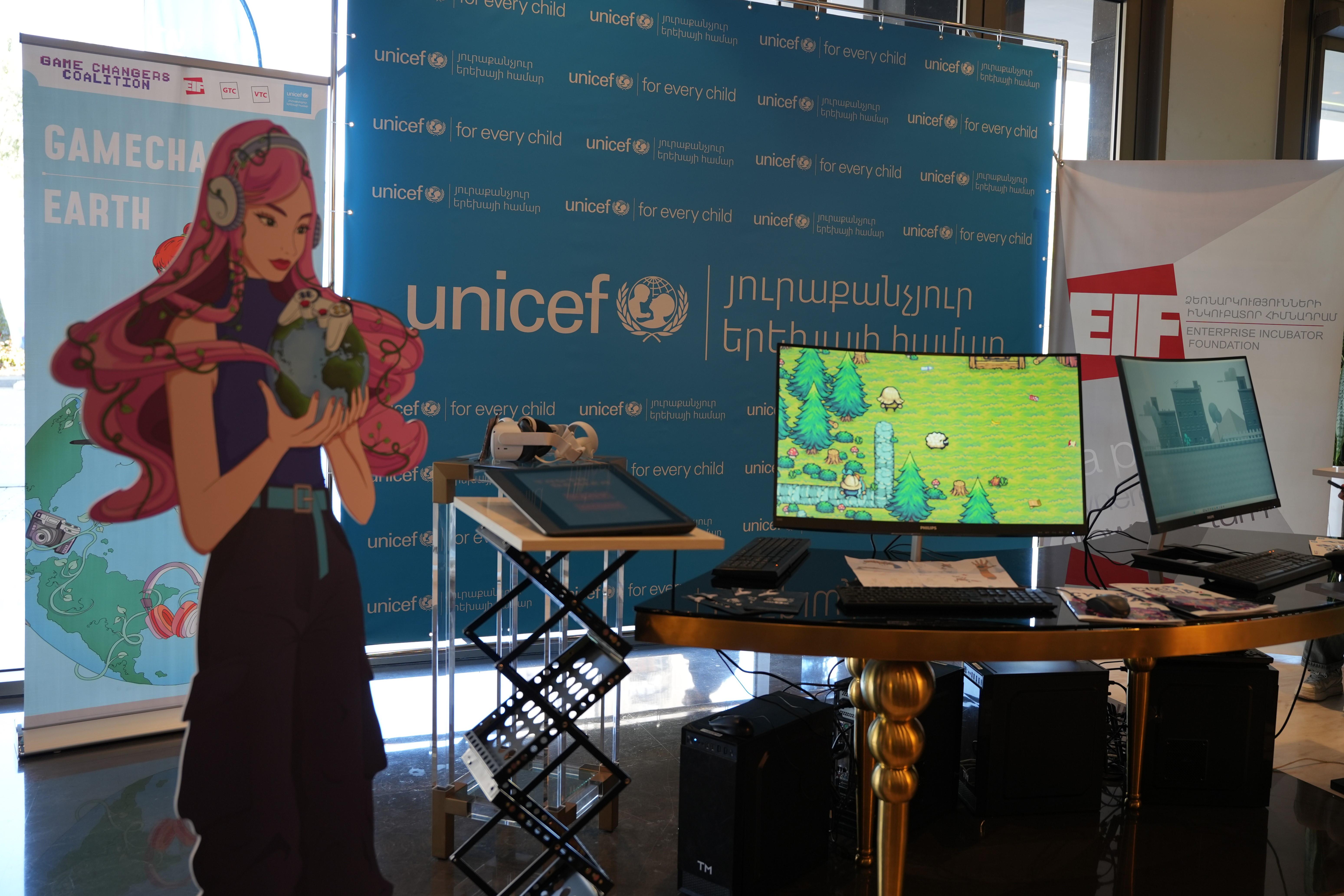
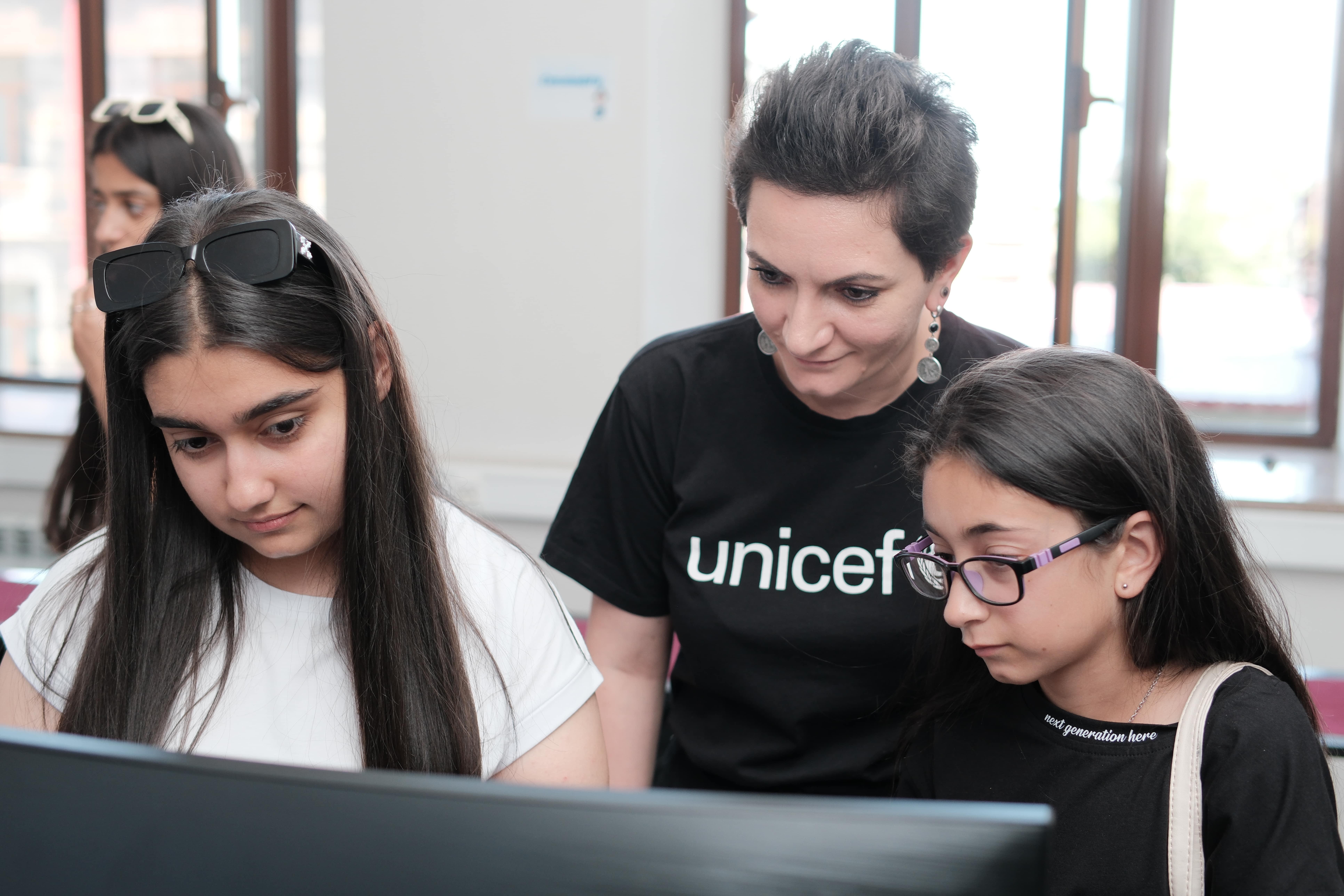
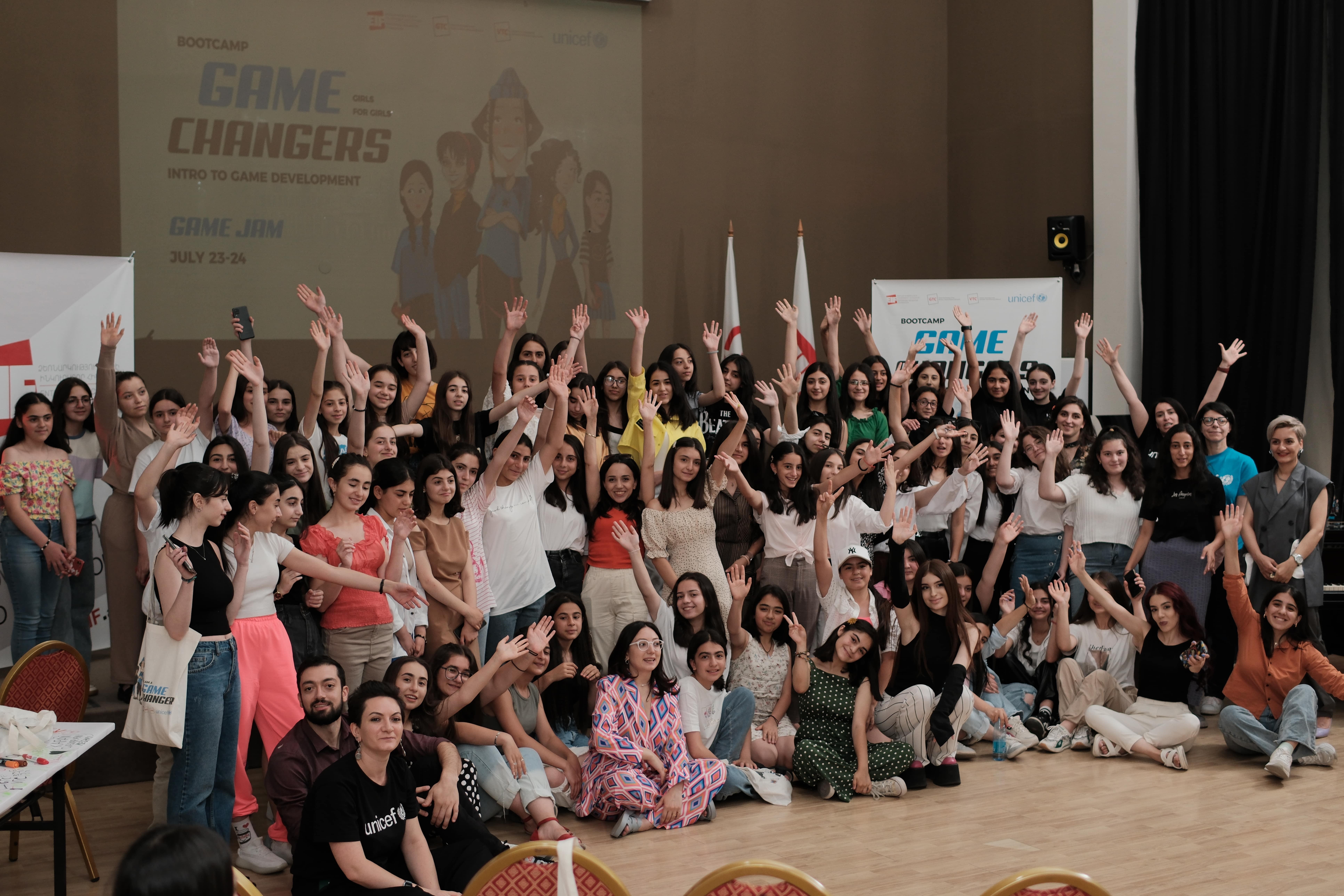
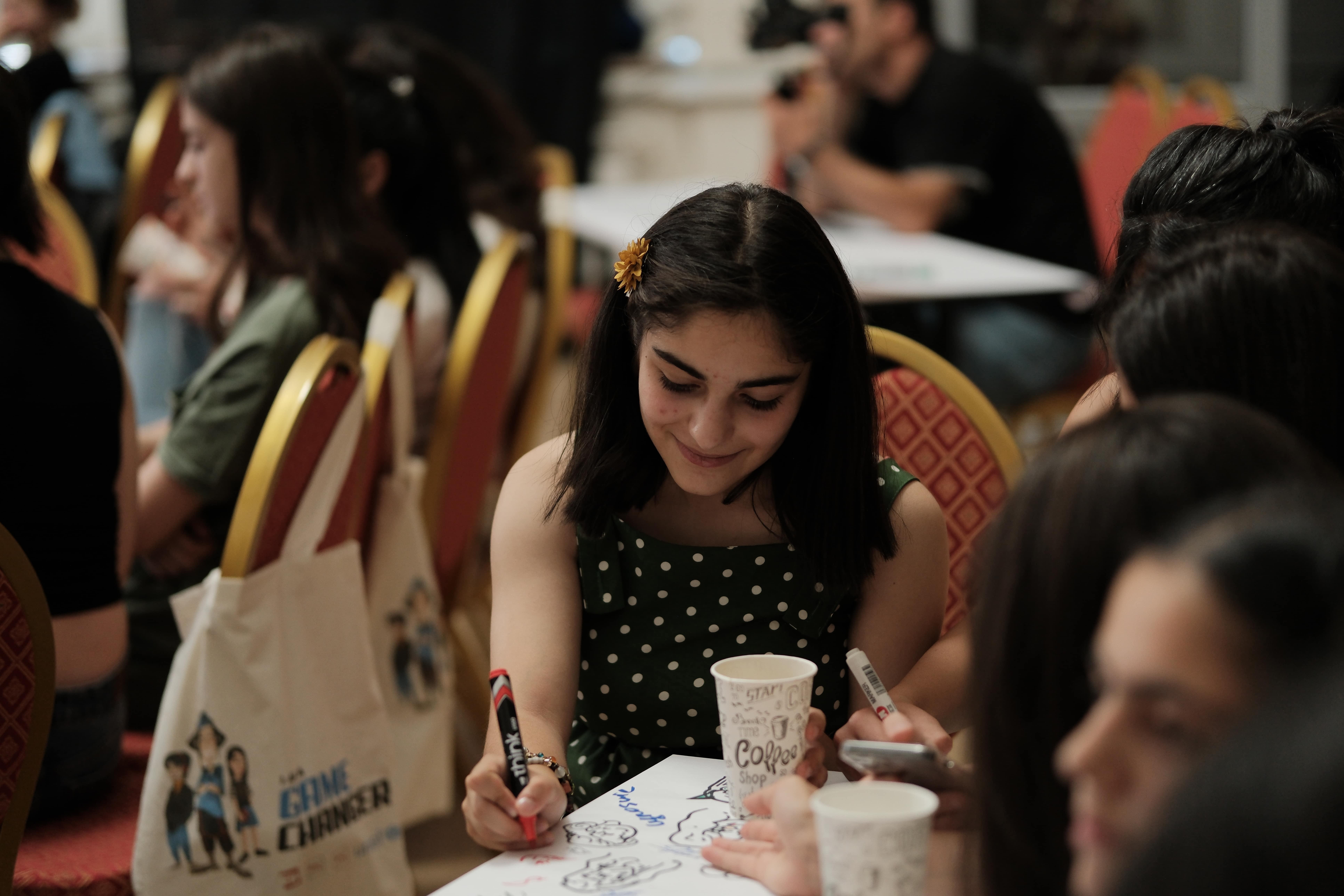
Write a comment